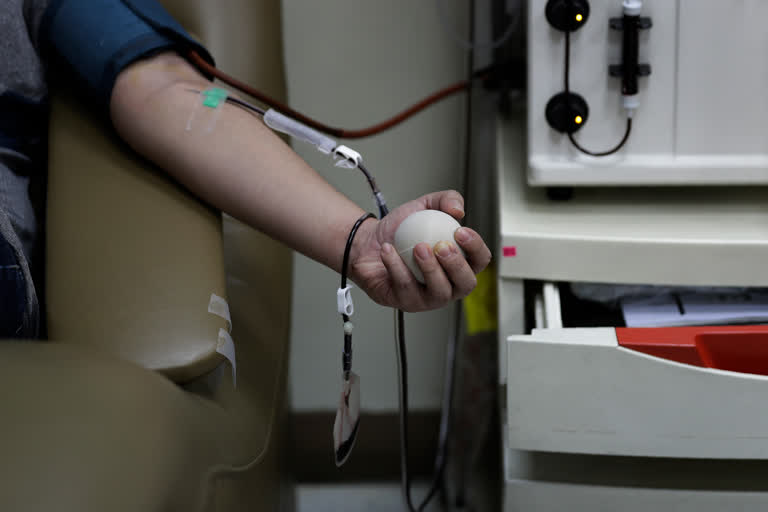Manila:Doctors around the world are dusting off a century-old treatment for infections to see if it helps with the recovery of COVID-19 patients.
They're using infusions of blood plasma which is teeming with immune molecules that helped survivors of the virus beat the illness.
In Manila, as in many hospitals worldwide, doctors are using an experimental treatment they call convalescent plasma.
Watch how Philippines doctors use survivor's plasma to treat new COVID-19 patients. Plasma is the liquid part of the blood which carries essential proteins, nutrients, and hormones to the parts of our bodies that need it.
COVID-19 survivors like Doctor Manuel Sotelo III also have antibodies in their plasma. These are proteins that help to fight off infection.
Watch |Legacy of world's first nurse still resounds on 200th anniversary
Doctors here are hoping it will give COVID-19 patients the boost they need to fight off the new coronavirus.
Now free of COVID-19, Sotelo has not wasted time in coming to this hospital to donate his plasma.
After passing screening requirements Sotelo got a call from a hospital saying a recipient is matching his blood type,
"Whatever little thing I could do to help others, who have suffered from this disease. I also saw the promise of this plasma therapy, this plasma transfusion, so this was one of my priorities after I got my negative results from COVID-19," says Sotelo.
According to a report published by the National Center for Biotechnology Information in the US, convalescent human plasma was used for the treatment of measles and yellow fever in the 1930s.
Watch |Sri Lanka newlyweds cancel wedding party, help poor instead
It was also used to treat patients during the influenza pandemic at the end of the First World War in 1918.
The length of time that COVID-19 antibodies can survive is not known, but some antibodies can survive for months or years.
Doctor Francisco Lopez, is an oncologist and hematologist leading the convalescent plasma treatment at the St. Luke's hospital in Manila.
He describes convalescent plasma as a form of passive therapy.
"So when, when somebody gets a virus, you produce antibodies and these antibodies help fight the infection. So in this case, it's the COVID-19 virus. And when a patient recovers, they already have antibodies in their blood. And so this is what we collect, the plasma, and the plasma is the fluid portion of our blood. And we only collect the plasma, and that is rich in antibodies and hence the term convalescent plasma. So it's a form of passive therapy because you already have the antibodies there. And that's the one that helps fight the infection in somebody who is infected with COVID-19, and who's critically ill," he explains.
When new diseases erupt and scientists are scrambling for vaccines or drugs, convalescent plasma is considered a stopgap measure that can be put in place quickly.
There's no proof it will work, but Lopez and his colleagues at St. Luke says they're encouraged by initial results.
Lopez believes that the risks are low for COVID-19 patients who consider plasma treatment.
Doctor Jen Aranzamendez was among the early plasma donors at St. Luke's Hospital.
She says her plasma donation is her way of helping other COVID-19 patients.
Aranzamendez can vividly remember when she was at her weakest point with COVID-19.
As of 18 May 2020, there have been 12,718, confirmed cases of COVID-19 in the Philippines and 831 deaths.
According to Lopez during the first full month of providing convalescent plasma therapy St. Luke's Medical Center treated a total of 27 COVID-19 patients, 18 were critically ill on mechanical ventilation, while nine were severely ill.
Of that total 19 patients have recovered, three are improving, and five have died. The hospital advocates giving convalescent plasma before patients get intubated.
(AP)
